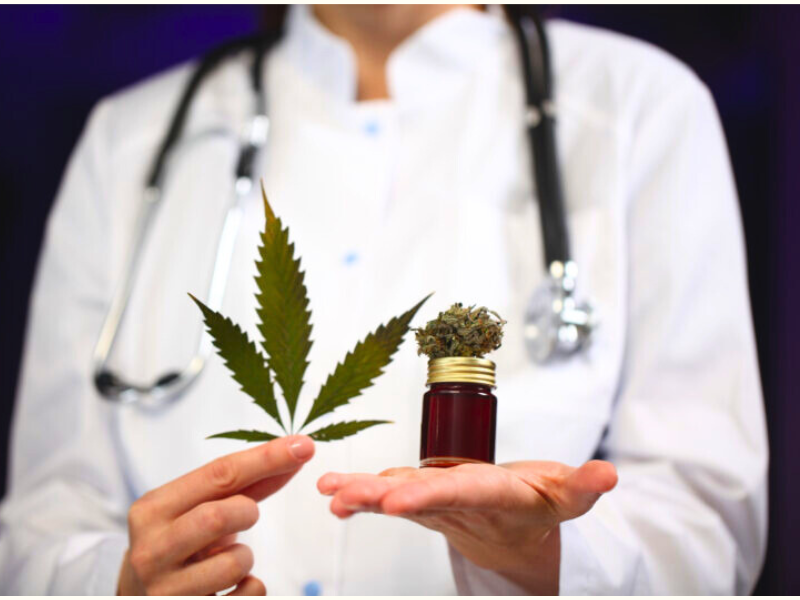BLOG
Exploring the Use of CBD and Medical Marijuana in Cancer Treatment

In recent years, the use of Cannabidiol (CBD) and medical marijuana in cancer treatment has gained significant attention. Both have shown potential in alleviating symptoms associated with cancer and its treatment. This blog delves into the benefits, scientific evidence, and considerations of using CBD and medical marijuana for cancer patients.
Understanding CBD and Medical Marijuana

What is CBD?
CBD, or cannabidiol, is a compound found in the cannabis plant. Unlike its counterpart, THC (tetrahydrocannabinol), CBD does not have psychoactive effects, meaning it doesn’t produce a “high.” CBD is often extracted from hemp, a variety of cannabis with low THC levels, and is used in various forms such as oils, tinctures, edibles, and topical applications.
What is Medical Marijuana?
Medical marijuana refers to the use of the cannabis plant, or its extracts, to treat symptoms of illness and other conditions. It contains various cannabinoids, including THC and CBD. The legal status of medical marijuana varies by country and state, but it is increasingly being recognized for its potential therapeutic benefits.
Potential Benefits for Cancer Patients
Pain Management
One of the most significant benefits of CBD and medical marijuana is pain relief. Cancer and its treatments, such as chemotherapy and radiation, can cause severe pain. Studies have shown that cannabinoids can effectively reduce chronic pain by interacting with the body’s endocannabinoid system, which plays a role in regulating pain.
Nausea and Vomiting
Chemotherapy-induced nausea and vomiting (CINV) are common and distressing side effects for cancer patients. Medical marijuana, particularly products containing THC, has been found to be effective in reducing CINV when traditional antiemetic drugs are not sufficient. CBD also has anti-nausea effects, making it a viable option for those who cannot tolerate THC.
Appetite Stimulation
Loss of appetite and weight loss are common issues for cancer patients, particularly those undergoing chemotherapy. Medical marijuana has been shown to stimulate appetite, helping patients maintain their weight and nutritional intake. THC is primarily responsible for this effect, but CBD can also contribute by reducing anxiety and improving overall well-being.
Anxiety and Depression
Cancer diagnosis and treatment can lead to significant emotional distress, including anxiety and depression. CBD has been shown to have anxiolytic (anxiety-reducing) and antidepressant effects, helping to improve the mental health of cancer patients. The compound interacts with serotonin receptors in the brain, which play a key role in mood regulation.
Scientific Evidence and Research
Preclinical Studies
Preclinical studies have provided insights into the potential anti-cancer properties of cannabinoids. Research has shown that both CBD and THC can induce apoptosis (programmed cell death) in cancer cells, inhibit cell proliferation, and reduce tumor growth in animal models. However, these effects need to be validated in human clinical trials.
Clinical Trials
Several clinical trials have investigated the use of CBD and medical marijuana in cancer patients. For example, a study published in the British Journal of Pharmacology found that THC and CBD extracts were effective in reducing pain and improving sleep quality in cancer patients. Another study in the Journal of Clinical Oncology highlighted the efficacy of cannabinoids in managing CINV.
While these results are promising, more rigorous, large-scale clinical trials are needed to establish the safety and efficacy of cannabinoids in cancer treatment definitively.
Considerations and Risks
Legal and Regulatory Issues
The legal status of CBD and medical marijuana varies widely. In some regions, both are fully legalized, while in others, they may be restricted or illegal. Patients considering these treatments should be aware of local laws and regulations and consult with healthcare professionals.
Side Effects
While CBD and medical marijuana are generally well-tolerated, they can cause side effects. Common side effects of CBD include dry mouth, dizziness, and changes in appetite. THC can cause psychoactive effects, including euphoria, altered perception, and, in some cases, paranoia. It’s important for patients to start with low doses and gradually increase as tolerated.
Drug Interactions
Cannabinoids can interact with other medications, potentially altering their effectiveness or increasing the risk of side effects. Cancer patients often take multiple medications, so it’s crucial to discuss the use of CBD or medical marijuana with a healthcare provider to avoid adverse interactions.
Conclusion
The use of CBD and medical marijuana in cancer treatment holds significant promise for alleviating symptoms such as pain, nausea, loss of appetite, anxiety, and depression. While preclinical and clinical studies have provided encouraging results, further research is needed to establish their efficacy and safety comprehensively.More

